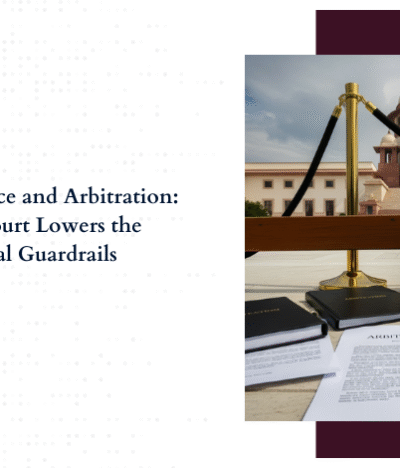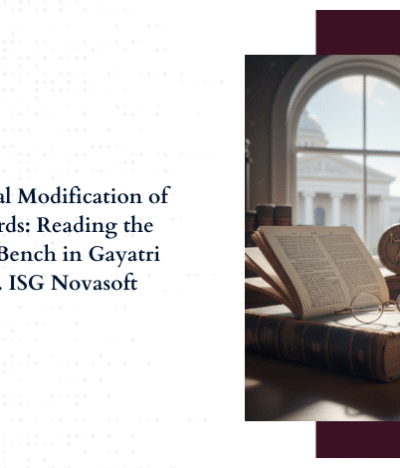In a landmark ruling, N.P. Enterprises v. General Manager, Western Railway – Commercial Arbitration Application No. 30940 of 2023 (Date: 18.04.2024), the High Court of Bombay has determined that appointing arbitrators from a narrow panel of four is in violation of Section 12(5) of the Arbitration and Conciliation Act (A&C Act). This judgment, delivered by Justice Bharati Dangre, reinforces the fundamental principles of independence and impartiality in arbitration.
Table of Contents
ToggleCase Background
The dispute arose from a contract dated January 2, 2020, when N.P. Enterprises claimed payments due under the agreement were not made by the Western Railway. The petitioner was contracted to provide mechanized and manual cleaning and housekeeping services at 13 railway stations. A dispute over payment obligations led the respondent to invoke the arbitration clause specified in their agreement.
Legal Proceedings
Unable to agree on an arbitrator, the petitioner sought the intervention of the High Court under Section 11(6) of the A&C Act. The petitioner argued that the contract’s method for choosing arbitrators was unfair because it limited choices to a small, biased group controlled mostly by the respondent.
Petitioner’s Arguments
The petitioner raised several key points challenging the validity of the appointment process:
- Narrow Panel of Arbitrators: The contract’s provision for selecting arbitrators from a restricted panel of four was argued to be invalid.
- Appointing Authority’s Role: The General Manager of the respondent, acting as the appointing authority, was claimed to undermine impartiality.
- Dominance in Appointment: The respondent’s ability to appoint two-thirds of the arbitral tribunal, while requiring confirmation of the petitioner’s nominee, was deemed unfair.
Respondent’s Defence
In response, the respondent defended the appointment procedure by referencing the CORE judgment, which upheld a similar process. Additionally, they cited that In Voestalpine Schienen GMBH Vs. Delhi Metro Rail Corporation, the Supreme Court allowed the appointment of retired government employees as arbitrators, valuing their technical expertise.
Court’s Analysis and Decision
Justice Dangre examined the arbitration clause, which required forming a three-member tribunal from a panel of four names maintained by the respondent. The petitioner was to select three names, from which the respondent would choose one as the petitioner’s nominee. The remaining two arbitrators, including the presiding arbitrator, were appointed solely by the respondent.
The Court ruled this arrangement violated Section 12(5) of the A&C Act, emphasizing that arbitrators must be independent and impartial. A narrow panel restricted free choice and raised suspicions of favouritism. Referring to the Voestalpine Schienen GmbH v. Delhi Metro Rail Corporation, the Court highlighted the necessity for a broad and diverse panel to prevent conflicts with Section 12(5).
The Court concluded that the power of the General Manager of Western Railway to confirm the nomination of an arbitrator by the contractor runs contrary to the principles of impartiality and independence. Justice Bharati Dangre underscored that the practice of preparing narrow panels restricts free choice and could lead to bias, which undermines the fairness of the arbitration process.
Given these findings, the Court allowed the petition and appointed a sole independent arbitrator to resolve the disputes between the parties. This decision aims to ensure that the arbitration process remains fair, impartial, and in accordance with the principles of natural justice.
Conclusion
The High Court of Bombay’s ruling is a pivotal development in arbitration law. By declaring narrow arbitrator panels unlawful, the Court has set a significant precedent that will influence future arbitration agreements and practices, ensuring that the process remains fair and unbiased for all parties involved.






